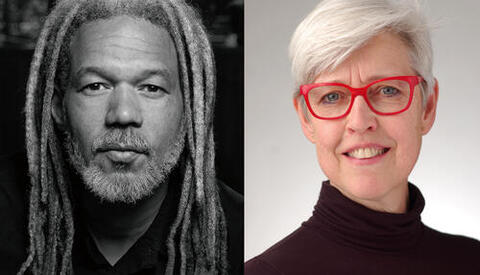Two winners announced for the 2021 annual Frederick Douglass Book Prize

by PALOMA VIGIL for Yale Daily News
Yale’s Gilder Lehrman Center for the Study of Slavery, Resistance and Abolition has announced Vincent Brown and Marjoleine Kars as winners of the prestigious Frederick Douglass Book Prize.
According to David Blight, director of the Gilder Lehrman Center, the book prize is awarded each year to the “best book written in English about slavery, abolition and their legacies across all borders and all time.” Brown and Kars’ respective books, “Tacky’s Revolt: The Story of an Atlantic Slave War” and “Blood on the River: A Chronicle of Mutiny and Freedom on the Wild Coast” won for their novel portrayal of the Black historical experience. The award’s recipients were announced on Nov. 23.
“This year [the prize] is shared by two brilliant books. We want these books to reach out beyond the subject field and into public leadership. The winner’s books tend to have serious insights and thought-provoking arguments,” Blight said.
Blight, who has directed the Center since 2004, won the award in 2001 for his book, “Race and Reunion: The Civil War in American Memory.” As director, he oversees the awarding of the prize and believes that the books “always [have] a combination of factors that achieve breakthrough research, quality of the writing and the persuasion of the argument.” The books must shine in all three categories to win the prize, he told the News.
Each year, Blight appoints a jury of three historians around the world who read all the books and choose three finalists. Then, a small board of four representatives from the Gilder Lehrman Center, the Gilder Lehrman Institute of American History and the University meet with the jury in November to choose the winner.
This year the jury was chaired by Professor Emeritus at Howard University Joseph P. Reidy, and also included Marlene Daut of the University of Virginia and Matthew S. Hopper of California Polytechnic State University. The two winners were selected out of 85 nominations made by the review committee.
Brown, one of this year’s winners, is a professor of African and African American Studies and American History at Harvard. His book is about “the largest slave insurrection in the 18th century British empire in Jamaica from 1760 to 1761,” according to Brown.
“People think of slave revolts as something separate from war so I wanted to show how the slave revolt was in fact a war,” Brown said. “Slavery itself was a constant state of war.”
Brown’s book has won eight book prizes and was a finalist for five others. He said that the timing of the book’s release may have influenced its success, as it came out in 2020 — a time of racial reckoning after the murder of George Floyd. Brown’s book became a source of knowledge for those looking to learn about the history of “anti-Black militarism,” he explained.
Kars, who shared the prize, is an associate professor at the University of Maryland, Baltimore County and a noted historian of slavery. Kars’ book “Blood on the River: A Chronicle of Mutiny and Freedom on the Wild Coast,” is about the Berbice slave rebellion in Guyana that began in 1763 and lasted more than a year, she told the News.
Although it was the largest rebellion to occur in the Caribbean prior to the Haitian revolution, the rebellion that Kars studied is “relatively unknown outside of Guyana,” she said, unlike the rebellions discussed in Brown’s book.
To write her book, Kars drew upon witness and personal testimonies from the rebellion that were discovered in the national archives of the Netherlands. Using this testimony, Kars said that she was able “to write about what it feels like to be caught up in a rebellion as an ordinary enslaved person,” rather than writing about the rebellion from a birds-eye view.
“I consciously wrote it to be a compelling story, more than a very analytical book. I wanted the story to drive the book,” Kars said. “The Dutch are really only starting to grapple with their slavery past. I thought, if I write a book that is really compelling to read, then I can teach them a lot about slavery in the process.”
Alongside these two winners, the committee also named Jessica Marie Johnson, assistant professor in the Department of History at the Johns Hopkins University, as a finalist for the prize for her book, “Wicked Flesh: Black Women, Intimacy, and Freedom in the Atlantic World.”
According to Hopper, these books help to emphasize the fight against violence and oppression of African people.
The winner of the prize receives $25,000, as well as the prestige associated with the award that is well known within the field of international and slavery abolition studies. The Gilder Lehrman Institute of American History also sponsors the prize alongside the Gilder Lehrman Center for the Study of Slavery, Resistance and Abolition, which presents the award.
Brown and Kars will receive their prize at a ceremony sponsored by the Gilder Lehrman Institute in New York City on Feb. 17, 2022.
